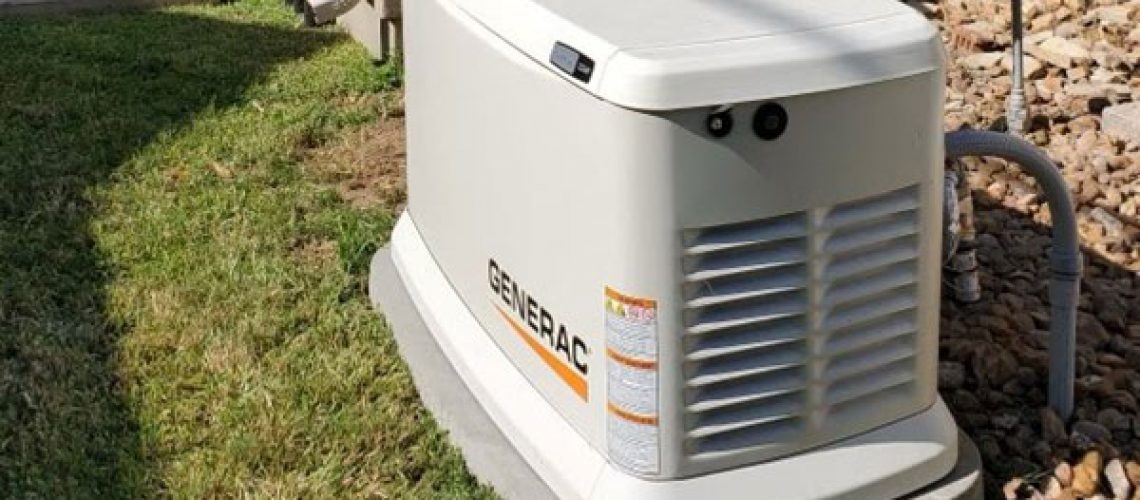The importance of having power in your home cannot be underestimated. Home generators were recently considered to be the next must-have appliance for any home and it is easy to see why. Whole-home generators are becoming a must-have appliance this year, with demand at an all-time high. But it is not just about the demand, it is about changing with the times. The fragility of the old electrical grids are having a direct impact on the power to our homes. As a result, homeowners are starting to take control of their own electrical power, becoming part of the Stand By Power People community.
We have to remember that if there is a power outage, life pretty much stops. But this is where a generator will power into life, ensuring that we do not go without. A generator is going to protect your home and your utilities from unexpected hazards. In a matter of seconds, power kicks in, and life carries on. But when it comes to choosing a generator, it is not a one-size-fits-all approach. Choosing the right generator is about picking the right size. And answer this question, we have to go through a few steps.
Understanding How Much Power You Really Need
Picking the right generator for your home is crucial, and choosing the right size depends on how much power you need for the property. If you choose a unit too small, it may not be able to handle the appliances you use on a daily basis. If you blast the air conditioner all day, every day, or use pumps to keep your basement free from dampness, a small unit will not provide enough power. On the other hand, if you choose a generator too large, this isn’t just inefficient for your needs, but it wastes fuel, which will cost you more in the long-run.
It is important to remember that when we are choosing a generator, we get an idea of how much energy our appliances use. Understanding our energy usage is crucial, but first, we need to school you on the subject of Watts and Kilowatts. Generators are rated in Watts (W) or Kilowatts (kW). But appliances are usually rated in Amps, Amperes, Volt-amperes, as well as Watts and Kilowatts. These are, simply, different units used to calculate the total power consumed or produced by electric equipment.
To decide the size of your generator, you need to calculate how many watts or Kilowatts your appliances use on a daily basis. You can do this by looking at each item you use, and make a note of the power requirements in watts. Some items list the power in Kilowatts or Watts, whereas others will show the voltage and amps. And as you need to figure out the number of Kilowatts each appliance requires, use the following formulas:
If the label states Volt-Amps (VA):
Volt-Amps = Watts
If Volts and are amps given separately:
Volts x Amps = Watts
If the label states Kilowatts (kW):
Kilowatts ÷ 1000 = Watts
If the label shows Watts:
Watts x 1000 = Kilowatts
Now you have to determine what appliances you would consider important during a power outage. As a rule of thumb, heavy-duty generators deliver approximately over 10,000 Watts. This is usually enough to run the most important household appliances. But it is crucial at this point to make a list of all the devices you need to run. The air conditioning, freezer, refrigerator, and lighting are some of the common items. Remember, even if an item is small in stature, that doesn’t mean it uses less electricity. For example, a hair dryer uses between 1200 and 1875 watts.
After you have listed all of the essential appliances in your home, you can then start adding the utilities you don’t want to lose. This could be your cell phone charger or television. These might not be deemed the most important, but they are two items that don’t add very much power. And when you start a factor in other conveniences you don’t want to lose, such as a microwave or an electric frying pan, you have to remember that each item will add more power to the total capacity. If you experienced a power outage while the oven is turned on, you may want to factor in this as well, as this uses between 2000 and 2200 Watts.
What Size Generator Do I Need To Run the Whole House?
This question is unique to your home. Having a whole home generator will cover all of your energy needs, no different than being connected to the the utility. However, in some cases a managed solution is adequate; in these scenarios power is prioritized for your home allowing a smaller unit to maximize power distribution.
It is possible to use a generator between 5,000 and 7,500 Watts. This will allow you to run some of the critical equipment in your home, but it is important to manually calculate the wattage of your home appliances. Many smaller generators lack the power to run a standard air conditioner, and for those with electrical heaters will need specific units to run properly. While the needs of your home may vary, the vast majority of electric appliances sold in the US adhere to the same standard and are usually rated 120V. There are some exceptions to the rule, including:
In the home:
- An air conditioner uses 2200W when starting and 1500W when running.
- A microwave oven of 800 watts uses 1300W when starting and running.
- A sump pump of ½ HP uses roughly 2150W starting and 1050W when running.
- A hot water heater uses 4500W starting and running.
Tools:
- A welder of 200 A uses 9000W when starting and running.
- An air compressor uses 4500W when starting and 1600W when running.
- A chainsaw uses 1100W when starting and running.
- A portable heater of 50,000 BTU uses 600W when starting and 400W when running.
You may wonder if you need a generator to power the entire house or just the essential equipment. This is a question that only you can answer. If you live in an area prone to natural disasters and common power outages, a larger generator might be better for you and give you peace of mind. In addition, it is an excellent investment in the long-term. It may be an expense upfront, but when you consider what you deem to be essential on a daily basis, in comparison to what is important in an emergency, you have to take into account the bigger picture.
What Else Do I Need To Consider?
Another way of thinking about the right size generator for your home is actually considering how often you would need to use it, as well as how long. While it is not an exact science, it is a good idea to look at the following types of issues, and see which generator would suit your needs:
If You Experience Frequent Power Outages:
A home standby generator has enough power for your entire home. If you experience prolonged and frequent power outages, either because you live in an area that suffers extreme weather such as hurricanes, these types of generators can connect to your circuit breaker. This will allow you to run appliances hardwired into the home, such as sump pumps, central heating, and air conditioning.
If You Experience Occasional Outages:
A portable generator or a large inverter can be the best of both worlds if you experience sustained power outages, but are few and far between. These are ideal if you do not have a lot of money to purchase a stationary unit and have it installed. However, in many cases a smaller whole home generator (22kW or 24kW) are good options.
If You Rarely Lose Power:
If power outages are very rare, and you are lucky enough to keep going when you experience these few and far between occurrences, a recreational inverter or mid-sized inverter has enough power to keep your fridge going.
Do You Need a Little More “Light” on the Subject?
As you can see, choosing the right generator for your needs is not just about finding the first one you see, it is about ensuring that you have enough power in your property to keep everything you need up and running. Choosing a generator with the right size is crucial, especially if you have important work to do on your home computer, or you cannot miss that show. A power outage doesn’t just cause a minor frustration, but it can be something that has long-lasting effects on your home, especially if you store frozen food and the freezer breaks down.
If you live in an area that is prone to power outages, or you are now ready to take control of your power supply, you need to be sure that the power supply you choose is actually going to keep your home up and running. As you can see, there’s a lot to consider, and if you are ever in doubt, you need to seek the advice of trained professionals like Generator Supercenter. We can help you choose the right size generator based on your needs, but also show you the finest hand-selected generator models. We have installed over 10,000 generators, so we know when generators will do what they need to do for you. It is not an easy thing to figure out, as there are quite a few calculations, but also you need to think about what’s important for your home and loved ones during a power outage. But let us help you get to the generator that you need. As you can see, it is not a one-size-fits-all method, but when you find the right fit, it is an invaluable addition to your property.






